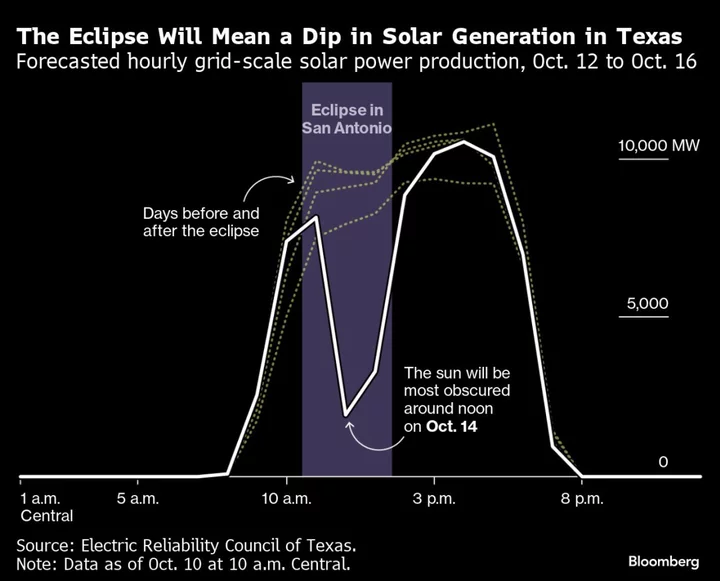Hundreds of fake Facebook posts are scaring people into sharing them, fact checkers have warned. Community groups are being filled with hoax posts that are shared across many groups and include scary information, intended to encourage people to share them. They claim that serial killers are on the loose, that deadly snakes are around, or that dogs or children have gone missing. One post claimed that a man was attacking people with a knife in the local area, for instance, claiming that he was preying on “home-alone teens” and demanding money from people. The same text has been circulated in a variety of locations in the UK – and has also been seen in the US and Australia – with police forces across the world having to make clear that it is a hoax. At least some of those posts are then being edited after the fact to change them to include financial offers that target people in the UK, and make exaggerated claims about those companies, according to Full Fact, the fact checking charity that has sounded the alarm on the posts. They then link users out to legitimate companies with the aim of making money through affiliate links that offer money for clicks. Full Fact said that it had identified over 1,200 hoax posts, spread across the UK. But it said there were likely many more. “The sheer scale of these posts is hard to fathom and we are conscious that the 1,200 or so we have identified is likely just the tip of the iceberg,” said Steve Nowottny, Editor at Full Fact. “These posts are all highly emotive and get shared widely because people understandably want to help those in need or warn their neighbours about threats. “But that’s where the risk lies – the hoaxers have clearly identified the massive reach these posts can have and local Facebook groups across the world are now becoming overwhelmed with false information. “Some of these hoaxes appear designed to terrify local communities, and sow needless fear and confusion. As a result, genuine warnings about dangers and genuine posts from people desperately appealing for help, such as those looking for missing loved ones or missing pets, are now at a much higher risk of being ignored. “The impact and scale of these hoaxes and the edited posts they are often replaced by is extremely concerning, which is why we have written to Meta to raise the alarm about this issue. ” Full Fact works with Facebook parent Meta on its third-party fact checking programme. It warned the company that “the risks posed by these posts are pernicious and frequent enough to merit stronger action from Meta in terms of proactively identifying and tackling this growing trend” in April, it said. Full Fact acknowledged that it is difficult to tell when a Facebook post is a hoax, since posts in groups are also often used to send out legitimate and important alerts. But it provided a list of characteristics that tend to indicate that a post might false. Many hoax posts close the comments, for instance, though fact checkers noted that some genuine posts close comments too and that not all fake posts have them on. They also tend to have been copied and pasted, use images from elsewhere, come from pages rather than profiles, use images and language from outside the UK, and include red pins or siren emoji. Full Fact also advised people to check whether posts had been edited, if they were suspected of being hoaxes. Clicking on the three dots in the corner of a post will show its edit history. And it suggested that users search for the text within a post, to check whether it has been shared elsewhere. Many of the scammers will use the same wording, with the location changed, fact checkers noted. Some groups have been forced to share frustrations about how many hoax posts are appearing in their communities. Full Fact pointed to one group formed by dog lovers that had been set up specifically to identify fake posts about lost or injured animals. A Meta spokesperson pointed to the company’s fact checking operations, and said that it was investing in more. It pointed to recently introduced tools including features that let group admins more easily remove posts that might include misinformation. “We’ve built the largest global fact-checking network of any platform, partnering with more than 90 independent fact-checking organisations including Full Fact, to tackle misinformation online,” a Meta spokesperson said. “Fraudulent activity is not allowed on our platforms and we removed the posts Full Fact brought to our attention for violating our Community Standards. “While no enforcement is perfect, we continue to invest in new technologies to stop scams and the people behind them. We also introduced new tools last year to help Facebook Group admins prevent the spread of misinformation and manage interactions in their groups.” Read More Justin Trudeau slams Facebook for blocking news stories about wildfires Elon Musk’s Twitter slows down access to rival websites Twitter turning Tweetdeck into paid service after slowing down access to rivals Mark Zuckerberg says he’s ‘out of town’ as Elon Musk drives to his house to fight Mark Zuckerberg hits out at Elon Musk for wasting time over cage fight Nvidia sales hit record high as AI chip demand soars
Hundreds of fake Facebook posts are scaring people into sharing them, fact checkers have warned.
Community groups are being filled with hoax posts that are shared across many groups and include scary information, intended to encourage people to share them. They claim that serial killers are on the loose, that deadly snakes are around, or that dogs or children have gone missing.
One post claimed that a man was attacking people with a knife in the local area, for instance, claiming that he was preying on “home-alone teens” and demanding money from people. The same text has been circulated in a variety of locations in the UK – and has also been seen in the US and Australia – with police forces across the world having to make clear that it is a hoax.
At least some of those posts are then being edited after the fact to change them to include financial offers that target people in the UK, and make exaggerated claims about those companies, according to Full Fact, the fact checking charity that has sounded the alarm on the posts. They then link users out to legitimate companies with the aim of making money through affiliate links that offer money for clicks.
Full Fact said that it had identified over 1,200 hoax posts, spread across the UK. But it said there were likely many more.
“The sheer scale of these posts is hard to fathom and we are conscious that the 1,200 or so we have identified is likely just the tip of the iceberg,” said Steve Nowottny, Editor at Full Fact. “These posts are all highly emotive and get shared widely because people understandably want to help those in need or warn their neighbours about threats.
“But that’s where the risk lies – the hoaxers have clearly identified the massive reach these posts can have and local Facebook groups across the world are now becoming overwhelmed with false information.
“Some of these hoaxes appear designed to terrify local communities, and sow needless fear and confusion. As a result, genuine warnings about dangers and genuine posts from people desperately appealing for help, such as those looking for missing loved ones or missing pets, are now at a much higher risk of being ignored.
“The impact and scale of these hoaxes and the edited posts they are often replaced by is extremely concerning, which is why we have written to Meta to raise the alarm about this issue. ”
Full Fact works with Facebook parent Meta on its third-party fact checking programme. It warned the company that “the risks posed by these posts are pernicious and frequent enough to merit stronger action from Meta in terms of proactively identifying and tackling this growing trend” in April, it said.
Full Fact acknowledged that it is difficult to tell when a Facebook post is a hoax, since posts in groups are also often used to send out legitimate and important alerts. But it provided a list of characteristics that tend to indicate that a post might false.
Many hoax posts close the comments, for instance, though fact checkers noted that some genuine posts close comments too and that not all fake posts have them on. They also tend to have been copied and pasted, use images from elsewhere, come from pages rather than profiles, use images and language from outside the UK, and include red pins or siren emoji.
Full Fact also advised people to check whether posts had been edited, if they were suspected of being hoaxes. Clicking on the three dots in the corner of a post will show its edit history.
And it suggested that users search for the text within a post, to check whether it has been shared elsewhere. Many of the scammers will use the same wording, with the location changed, fact checkers noted.
Some groups have been forced to share frustrations about how many hoax posts are appearing in their communities. Full Fact pointed to one group formed by dog lovers that had been set up specifically to identify fake posts about lost or injured animals.
A Meta spokesperson pointed to the company’s fact checking operations, and said that it was investing in more. It pointed to recently introduced tools including features that let group admins more easily remove posts that might include misinformation.
“We’ve built the largest global fact-checking network of any platform, partnering with more than 90 independent fact-checking organisations including Full Fact, to tackle misinformation online,” a Meta spokesperson said. “Fraudulent activity is not allowed on our platforms and we removed the posts Full Fact brought to our attention for violating our Community Standards.
“While no enforcement is perfect, we continue to invest in new technologies to stop scams and the people behind them. We also introduced new tools last year to help Facebook Group admins prevent the spread of misinformation and manage interactions in their groups.”
Read More
Justin Trudeau slams Facebook for blocking news stories about wildfires
Elon Musk’s Twitter slows down access to rival websites
Twitter turning Tweetdeck into paid service after slowing down access to rivals
Mark Zuckerberg says he’s ‘out of town’ as Elon Musk drives to his house to fight
Mark Zuckerberg hits out at Elon Musk for wasting time over cage fight
Nvidia sales hit record high as AI chip demand soars









